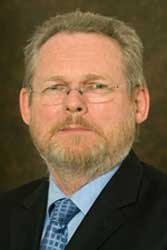
Top stories






More news














Logistics & Transport
Maersk reroutes sailings around Africa amid Red Sea constraints


The US government has been supporting African countries through this act‚ signed into law by the US Congress in 2000‚ with the broad objective of boosting exports from sub-Saharan Africa to the US. The act lets developing countries export goods tariff-free to the US. Through this support measure‚ more than 300‚000 direct jobs have been created in Africa.
According to the apparel manufacturing industry associations‚ which include the American Apparel and Footwear Association and the African Cotton and Textile Industries Federation‚ Agoa imports are important for the millions of American workers in apparel retailing‚ manufacturing and importing companies.
Last month‚ Trade and Industry Minister Rob Davies was in Washington to persuade US politicians to extend SA's trade access under Agoa. "There have been some discussions in the US about Agoa's extension beyond 2015 and whether SA should continue to be part of it. Some US interest groups argue the scheme should benefit only poor countries. SA is classified as a middle-income economy," Davies said.
In a joint statement released earlier this week‚ apparel manufacturing‚ brand‚ and retail industries in Africa and the US said that Agoa must be renewed as soon as possible‚ ideally during 2013‚ but not later than 201".

"This is because sourcing decisions are made many months in advance. Renewal needs to occur soon for it to be truly seamless. Any delay into 2015‚ especially in light of last year's last-minute renewal of the third country fabric provision‚ will discourage continued sourcing and new investment‚ resulting in the loss of trade and jobs in both Africa and the US‚" the associations said.
They said Agoa should be renewed for a long enough period - at least 15 years - to ensure the predictability necessary to support trade and investment decisions.
"Shorter term renewals will not provide enough certainty to enable the industry to make capital intensive investment decisions necessary to attract textile investments or affect long term sourcing partnership decisions," the groups said.
Apparel Manufacturers of SA (Amsa) executive director Johann Baard said that the associations were confident that Agoa would be renewed. "We will continue domestically to support the Minister of Trade and Industry Rob Davies and his team in their ongoing efforts to lobby the US government for an early announcement for a further extension of the Agoa beyond 2015‚" Baard said.
"We are confident that this will happen given the manufacturing and job creation profile of most Agoa exports to the US. Obtaining third country fabric status will significantly add to the domestic clothing manufacturing sector's ability to export competitively and duty free into the USA," he added.
Baard said that the joint statement by the African Cotton and Textile Industries Federation and other parties was significant in that it was the first time that all apparel value chain stakeholders across national boundaries had reached consensus on the need for all qualifying countries to enjoy a level playing field in respect of duty-free market access to the US under the Agoa.
"The current dispensation that stipulates South African clothing manufacturers must use domestic textile fabrics‚ has effectively served to chain our members to the starting blocks of the export race. This is simply due to the reality that US customers require fabrics for their garment ranges, which are not domestically available in SA‚" Baard said.